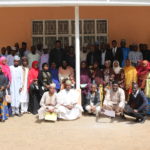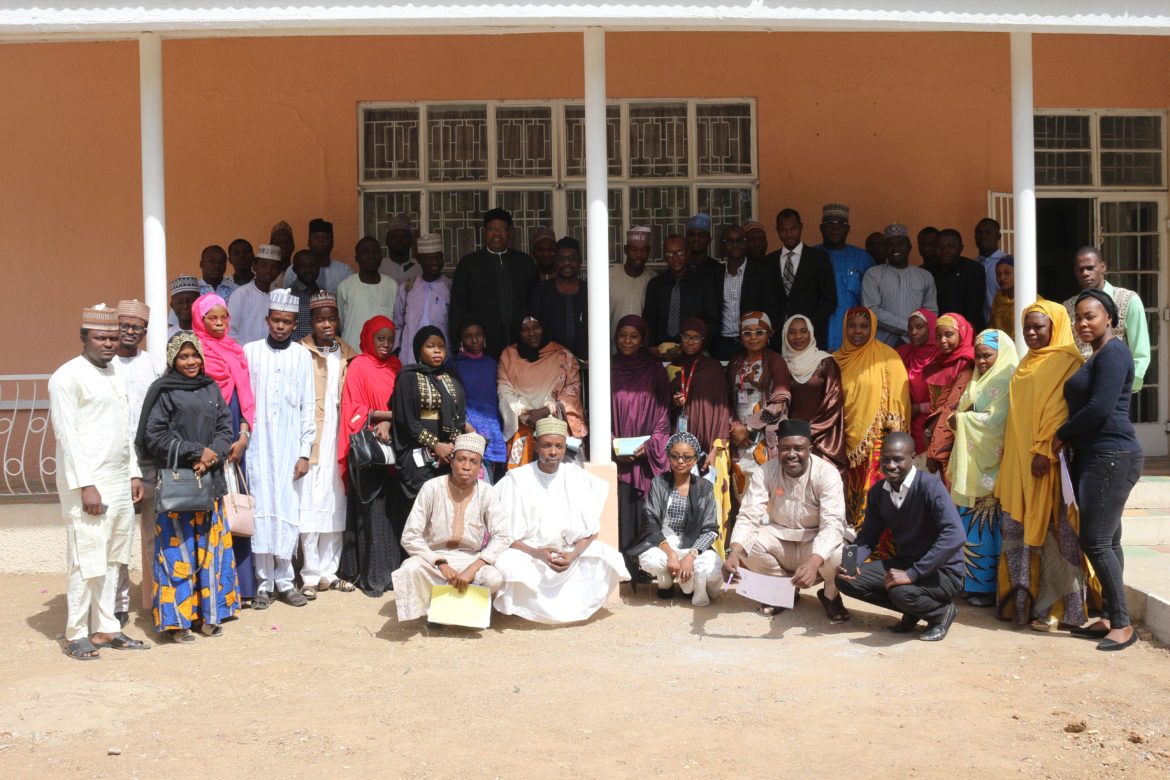By Haruna Gimba
The Sickle Cell Community with support from Community Health and Research Initiative (CHR) and the Centre for Sustainable Development and Communications Initiative (CSDCI) has established a Trust Fund to support people living with sickle cell disorder.
The fund is a sustainable financing mechanism for supporting the less privileged persons living with sickle cell especially in purchasing drugs and payment for screening and investigations.
Nigeria has the highest burden of Sickle Cell Disease (SCD) in the world and is also the top sickle cell endemic country in Africa, with an annual infant death of about 150,000 representing more than 8 percent of infant mortality in the country.
 At least 100,000 babies die from the disorder in Nigeria every year according to 2014 statistics by the World Health Organization (WHO), making it the number one sickle-cell endemic country in Africa.
At least 100,000 babies die from the disorder in Nigeria every year according to 2014 statistics by the World Health Organization (WHO), making it the number one sickle-cell endemic country in Africa.
“Sickle cell anemia is an inherited form of anemia, a condition in which there are not enough healthy red blood cells to carry adequate oxygen throughout the body. Normally, red blood cells are flexible and round, moving easily through your blood vessels. In sickle cell anemia, the red blood cells become rigid and sticky and are shaped like sickles or crescent moons.
“These irregularly shaped cells can get stuck in small blood vessels, which can slow or block blood flow and oxygen to parts of the body which bring about severe pain episodes called crises, resulting in many form of complication,” Shema’u Adam Imam, Vice President of the group stated in a statement read during the launch of the fund.
Health Reporters gathered that some of the challenges are poor availability of resources to the public health facilities, welfare sectors and economic inflation, which are severely curtailing access to appropriate medical and social services.
“This situation is frustrating to the families of a growing number of surviving patients in rural, urban or middle to upper income groups.”
According to her, efforts to create more awareness of sickle cell disorders are paradoxically increasing frustration and stigmatization in the absence of a commensurate improvement of services.
“Any measures aimed at enhancing the sensitization of health professionals, policy makers, and resource allocators to the pertinent issues in the control of SCD would seem to be at this stage an important step in the right direction, which is why the sickle cell community is taking a step to reduce burden for the less privileged with sickle cell,” Shema’u added.
She said: “Some members within the Sickle Cell Community and many others in the State are in plight and facing difficulties that they cannot cater for their hospital bills and cannot afford their daily routine drugs. Others have severe complications that require immediate attention but being delayed due to lack of financial stability.
“The growing deaths and suffering of sickle cell sufferers without any strategic supportive system is inevitable, however, the lost hope now regained with such initiative of establishing the trust fund.”
The Sickle Cell Community Trust Fund has established Board of Trustees who are working and passionate towards supporting and eradicating Sickle Cell disorder in our communities. The board of trustees are; Dr. Dalhatu Gwarzo, Salisu Muhammad Musa , Musa Abdullahi Sufi, Asmaú Ahmad Rufai and Shemaú Adam Imam
The vice president of the sickle cell community said that, “The CHR has committed to support trust fund over the next 12 months, where the CHR trustees will be contributing monthly donation which amounted to at least N500, 000 over the next 12 months.
“An initial N150, 000 is already donated as a takeoff grant to the trust fund. CHR will also be providing technical support to the success of the fund by providing conference room for trustees meetings, plus administrative and mentoring support.
“The group called on individuals, philanthropists, groups, organizations, corporate bodies, CSOs, Development Partners,
government everywhere to play their role in supporting the course,” she added. “Each one naira support means a lot from relieving the pains to saving lives of people already suffering from sickle cell disorder.”




